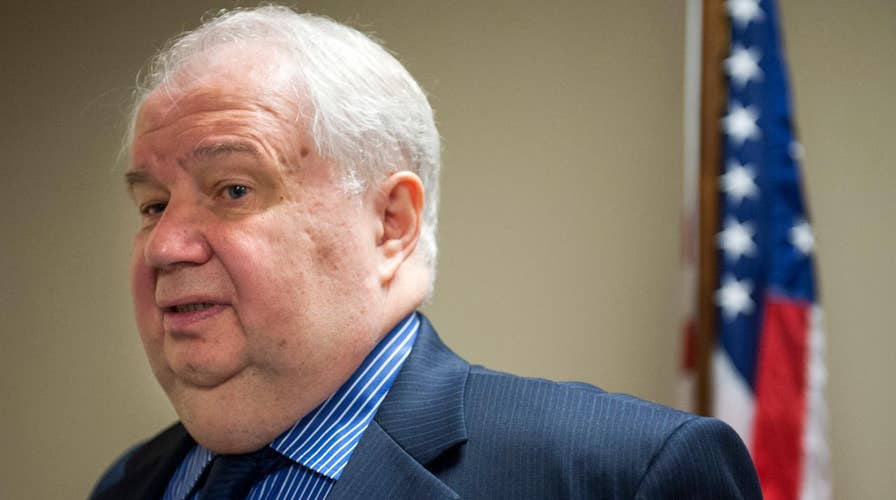Russian ambassador to the United States Sergei Kislyak -- a high-profile figure in the controversy over Russian meddling in the 2016 presidential election -- has concluded his assignment in Washington.
The Russian Embassy in Washington announced on Twitter that Kislyak's tenure ended on Saturday.
Kislyak's successor has not been announced, although it is widely expected to be Anatoly Antonov, a deputy foreign minister and former deputy defense minister seen as a hardliner regarding the United States.
A Washington fixture with a sprawling network, Kislyak has emerged as a central figure in the investigations into Russian interference in the election and whether any Trump associates were involved.
President Trump has repeatedly dismissed the story as "fake news," but the investigations have shown no signs of stopping, with a focus on top aides heightening.
Trump's first national security adviser, Michael Flynn, was fired after the White House concluded he had not been truthful about conversations he had with Kislyak. Attorney General Jeff Sessions recused himself from the Russia investigation after acknowledging two previously undisclosed contacts with Kislyak.
On Friday, the Washington Post reported that Kislyak said he discussed election-related issues with Sessions when the men met last year. The Post cited anonymous U.S. officials who described U.S. intelligence intercepts of Kislyak's descriptions of his meetings with Sessions.
The Justice Department said Sessions stands by his previous assertion that he never had conversations with Russian officials about any type of interference with the election.
The president's son-in-law and senior adviser Jared Kushner has also been criticized for failing to immediately disclose a meeting with Kislyak on his security clearance questionnaire. In that December meeting, he proposed a secret back channel between the Kremlin and the Trump transition team.
During a long diplomatic career, Kislyak has led the life of a fairly typical global envoy, making himself a reliable presence on the circuit of receptions, teas and forums that make up the calendar of any ambassador.
Kislyak, who was appointed to his post in 2008, is regularly spotted walking around town, heading to and from meetings. Early in his tenure, he often opened the doors of the Russian Embassy, hosting dinners for foreign policy professionals, Pentagon officials, journalists and Capitol Hill staffers.
His first foreign posting was to New York where he worked at the Soviet delegation at the United Nations in the early 1980s. He spent the following years as the first secretary and then councilor at the Soviet Embassy in Washington before returning to Moscow in 1989, where he took a succession of senior jobs at the Foreign Ministry.
He did a stint as Russian ambassador to Belgium and simultaneously served as Moscow's envoy at NATO. He then returned to Moscow to serve as a deputy foreign minister, overseeing relations with the United States and arms control issues before being sent to Washington.





